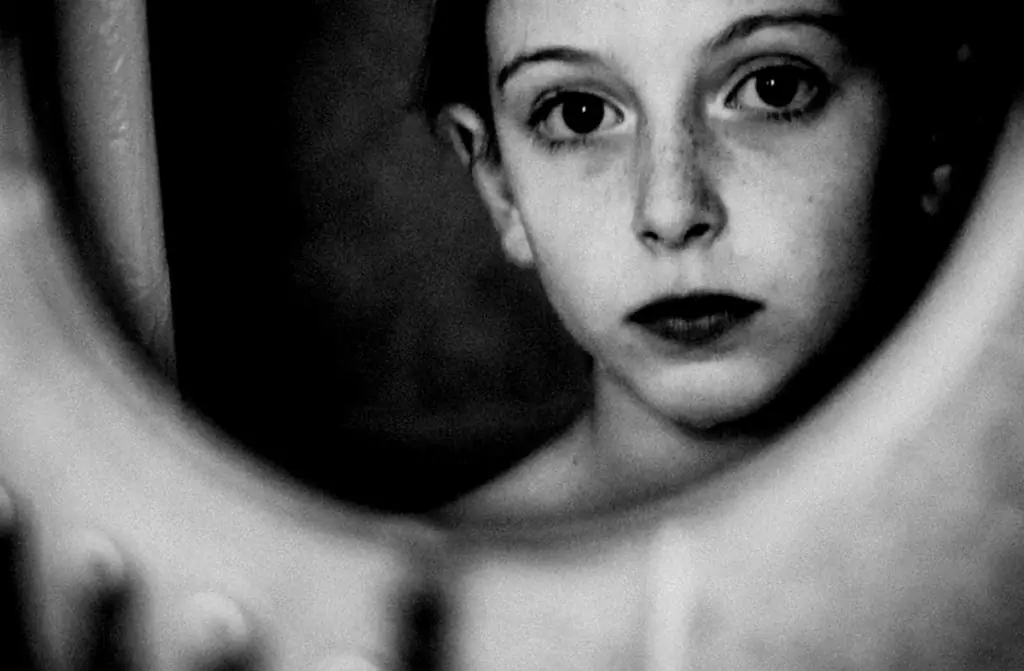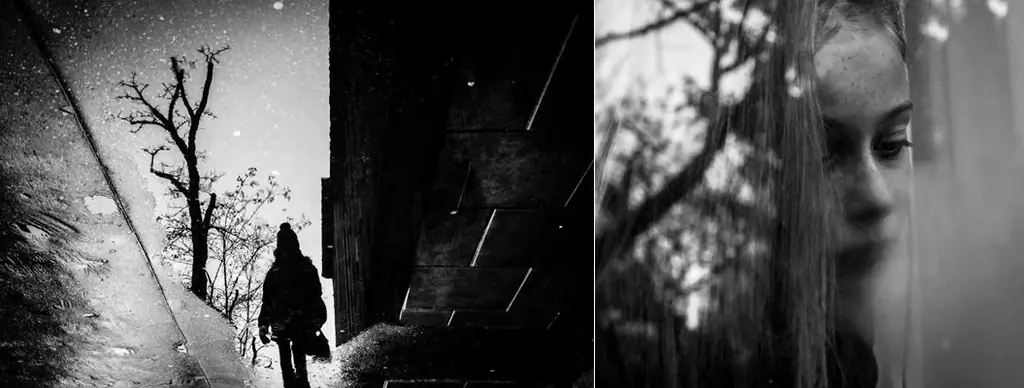- Author Adrian Jeff [email protected].
- Public 2023-12-17 05:06.
- Last modified 2025-01-24 14:09.

While we sleep, they teach our children how to commit suicide
Recently, we hear more and more about horrific cases of teenage suicide. Neither psychologists, nor friends, nor parents, let alone teachers, can give a clear explanation of why this happened.
Every parent wants their child to be happy. Therefore, he tries to educate him with all his might: to give knowledge, to teach good, to protect him from bad. But in the modern world, good from bad is not so easy to distinguish. Our parents were afraid of the negative impact of the street on their child. There were bullies and other negative personalities who could harm the child or teach him bad things.
In today's world, children don't walk the streets. They spend all their free time on the Internet. What does this mean and how does it affect the modern generation? Let's try to understand from the point of view of the System-Vector Psychology of Yuri Burlan.
We are our environment
All philosophers and psychologists unanimously assert that human consciousness forms the surrounding reality. Thoughts, ideas can arise only on the basis of the surrounding reality perceived by a person. The fate of a person is shaped under the influence of his environment, and it is a decisive factor in the formation of personality.
It used to be easier. The immediate environment: family, yard, school, as well as the usual media: newspapers, magazines, radio plus three television programs. And, of course, books. Books opened secret doors to other worlds for the younger generation, awakened the mind and feelings, educated and led.
Let's not forget that in the good old Soviet times, all printed materials were censored. Literature of morally corrupting content appeared in the public domain only after perestroika. And then they could teach children bad things only in the immediate environment: in the family, in the yard, at school. Good parents have always tried to control these sources of information: they did not swear at home, looked at who the child was friends with, with whom they were walking, and found the best school.
Uncontrolled reality
Now we are faced with a completely new phenomenon. A modern child receives all information not from books, and even less from his parents.
- How to do your math homework?
- What constellation is visible from the window?
- How to change a tire on a bicycle?
- How to please a boy?
- The best ways to have sex?
- What is the sense of life?
But you never know what questions come to mind of modern children! To answer them, parents are no longer needed, no need to be ashamed, blush and be afraid that you will be punished for being too curious. There is the Great and Mighty Internet - a new augmented reality that serves almost all informational and a significant part of the emotional needs of modern children.

Teach me bad things
No matter how hard parents try, they cannot control the influence of this additional reality on the developing child's psyche. What will interest the child? What inviting ad banner will he click on out of curiosity? Will it be a new movie or a computer game? Either a website that promotes terrorism or pornography, a religious sect, or a "death group" educating children on guaranteed ways to commit suicide.
- Who can guarantee the safety of finding a child on the Internet?
- No one.
Attempts by adults to restrict a child's access to the World Wide Web meet their fierce resistance and add problems to the already difficult relationship between "fathers and children". Parental control programs are easily bypassed by advanced schoolchildren, because for the most part children are much better versed in modern technologies than their parents.
The fact is that, according to system-vector psychology, a modern child has a much larger psyche, a larger volume of desires and more opportunities to satisfy them. A modern child in his age is able to understand much more than his peer 30-40 years ago. But does he understand? Unfortunately, not always. And often their widespread teenage "I don't want anything" means "I want so much, but I don't know how to get it, so I feel bad!"
Without knowledge of the innate vector features of the child, it is very difficult for a parent to understand his soul, his desires and needs. Urgent affairs, eternal parental employment and concern for their daily bread, plus the illusion of well-being, prevent parents from noticing alarming symptoms: the child is sitting at home, not hanging around the streets, everything seems to be fine.
- How are you?
- Fine.
- What are you doing?
- Yes so …
Noticing the strange behavior, the parents "guess" to get into the child's personal records by hacking his page on social networks. But do their heart-to-heart talks, lectures, and warnings help after that? Hardly. Rather, they alienate them even further, increasing mutual distrust, creating hostility.
Nevertheless, for everything bad that happens to a child, from petty theft in the supermarket to attempted suicide, we adults are responsible!
Come to us! We understand you!
Nowadays teenagers don't have to wander the streets to learn bad things. Previously, they left the house in the courtyards, now they go to the Internet. Everything is there for the realization of their still immature desires. You can get distracted and play a shooter for several hours in a row. You can go to an erotic site and find out about what mom and dad have never heard of or seen. And you can find someone who suffers from the same problems as you, find someone who understands you.
“Why is he on this Internet all night long? What is he looking for in these forums?"
He is looking for understanding and the same as himself. And he finds! They speak his language, they understand his problems and are ready to help. But how to help is a big question.

- Help satisfy youthful desires?
- Help avenge this cruel world?
- Help to part with this worthless and meaningless life?
Who is most at risk of being caught up in suicidal, ultra-religious and terrorist groups online?
System-vector psychology of Yuri Burlan warns parents of adolescents with sound and visual vectors
A subtle sensitive visual soul, who likes everything beautiful and mysterious, easily lends itself to all kinds of suggestions. It is easiest for them to instill, for example, against the background of suffering from the first unrequited love, that no one understands them and why they need such a life. In fact, death is an innate basic fear of the spectator, he is afraid of it more than anything else. But if it is “competently” romanticized, made “beautiful”, emotionally attractive, then for a visual teenager it is easy to make it attractive. This is what numerous groups on the Internet use, the so-called. whale fans, etc.
But the greatest risk of suicide is in adolescents with a sound vector. It is at this age that their urgent existential questions of the search for meaning become especially acute. Modern sonic teenagers are no longer filled with the activities that once filled their sonic peers - philosophy, music, exact sciences. Unaccustomed from childhood and therefore incapable of mental concentration - what is so necessary for the realization of the sound vector - they cannot even understand the reasons for their bad states: "It's just that everything is meaningless and empty!" There is nothing to ask the parents - what do they understand! - will again be sent to teach lessons, think about the future and not do nonsense!
But why, if everything is ashes ?!
The sound adolescent has no meaning in life and thinks he will find it in death. He does not feel the value of the life of the body, neither his own nor someone else's, therefore, with special suffering in the sound vector, he can go on extended suicide, taking other lives with him. It is the sonic teenager that is most easily carried away by the idea of saving the world from Evil, or, conversely, convinced that by killing himself he will be freed from the body, and with it from suffering.
But it is from the sound adolescents, with the correct development, that the geniuses of humanity grow, bringing new ideas and great discoveries into the world.
They don't understand me here
The worst thing is that when another child runs away to ISIS, shoots himself with his father's gun, or flies out of the window of a high-rise building, neither parents nor teachers can understand the reasons for his action, because nothing SUCH has been noticed behind him before. Outwardly, he lives a completely prosperous life as a child from a normal family. Parents and teachers do not even realize that his inner reality is completely different …
And it is clear that his inner trouble began much earlier, when the child felt that neither the family nor other adults understood him, that he was a stranger at this celebration of life.
The problem is that it seems to us, parents, that if we raised our child from the cradle, then we know him "as flaky". But we judge through ourselves, through our properties, through our volume of desires. But children are not a miniature copy of their parents! They have different innate properties and characteristics, a different innate amount of desires and talents. And when we try to compare them with ourselves in childhood, they have a very clear opinion about their parents: "They don't understand me here!"
The biggest mistake parents make: they think that a child cannot have serious experiences. Their desires or unwillingness seem to us childish whims, their interests - stupidity, and suffering - a whim. We know in advance what they should feel, what they want, what they should strive for. We know what's best for them!
So the most valuable thing in upbringing - an emotional connection - gradually disappears. For the time being, outwardly everything can remain fine. But the less upbringing before adolescence corresponded to the innate properties and characteristics of the child, the more acute and difficult it is for a teenager to go through puberty. But in spite of everything, he still tries to become himself: innate desires require their fulfillment. Trying to force him to realize our, and not his natural values, we increase his frustrations and suffering from unsatisfied desires, which he himself often cannot understand.

Prevention of child and adolescent suicides should begin with educational programs for parents and teachers
No amount of lectures and preventive talks about the value of life will help until the child himself can feel the pleasure of this life. The way of receiving pleasure depends on the satisfaction of innate desires, which depend on the vector set of the child, his innate properties that do not repeat the parental ones.
If we force a thin gentle boy to become a "real man" instead of sending him to a theater studio, where he can develop his talents, he will feel bad. Panic attacks, phobias, and transvestism are the price he will pay for our mistakes.
If we constantly shout at a sound adolescent or even just quarrel in front of him, if we do not create conditions for him to focus his mind, then he will feel bad. Depression and apathy are the lesser evils that are guaranteed to him.
If from childhood we frighten a visual girl that “a gray top will come and bite on the barrel”, then she will be scared all her life and also badly.
What other arguments need to be made so that parents and teachers understand that we need to learn to understand our children, otherwise we will lose them ?!
System-vector psychology of Yuri Burlan provides precise methods for understanding and raising a child, depending on the characteristics of his psyche, helps to fill and correctly realize his innate desires. This content works like an antivirus, like a compass, which helps them to get out of any Internet jungle, to avoid any negative influence, accurately distinguishing good from bad, useful from dangerous.
If you are aware of the problems in raising your child and are reading this article, then you can find the strength to establish contact, start talking with the child in his language, and understand what he really needs for happiness. Growing up is a gradual process, and while there is even the slightest chance to build closer contact, do not miss it!
Register for free online lectures on systemic vector psychology by Yuri Burlan here.






